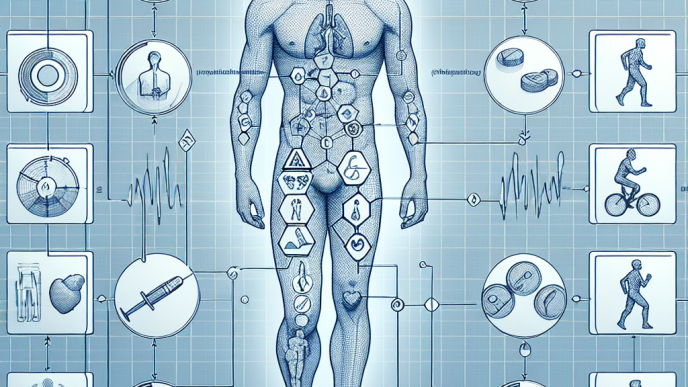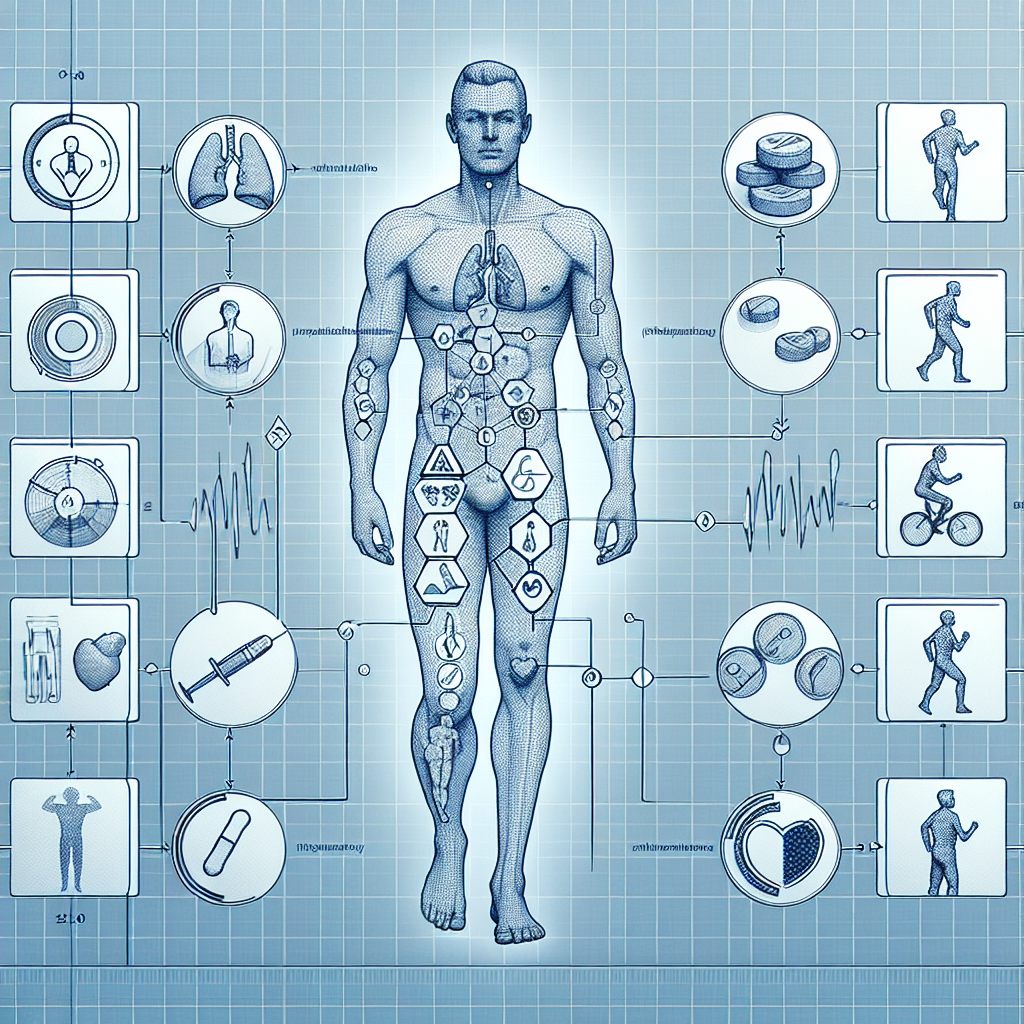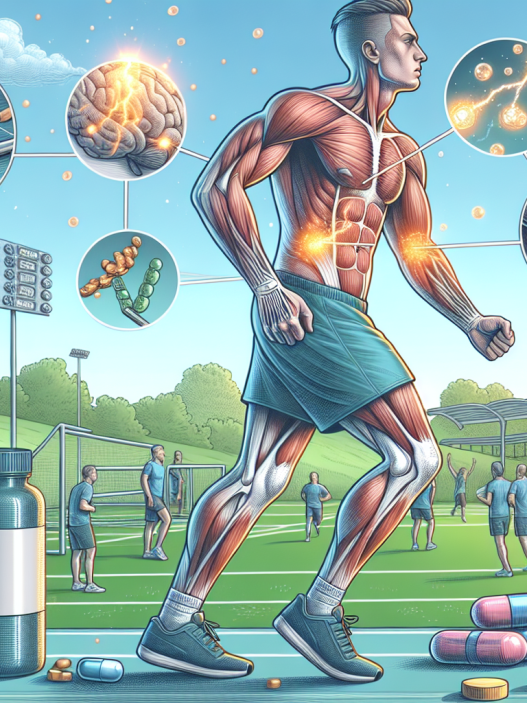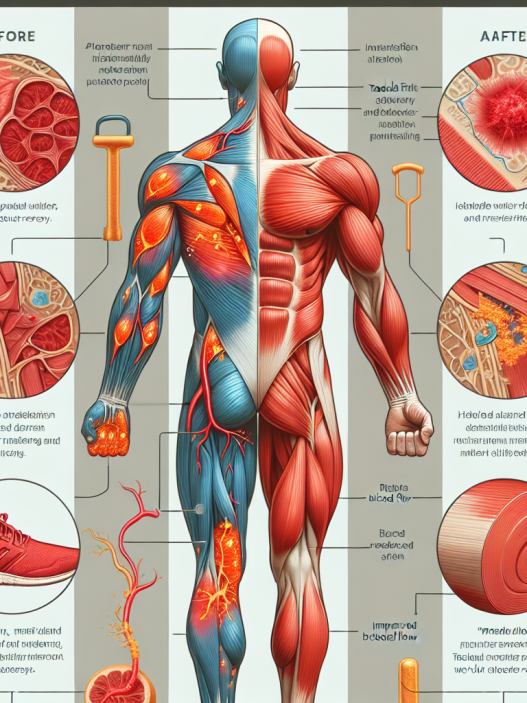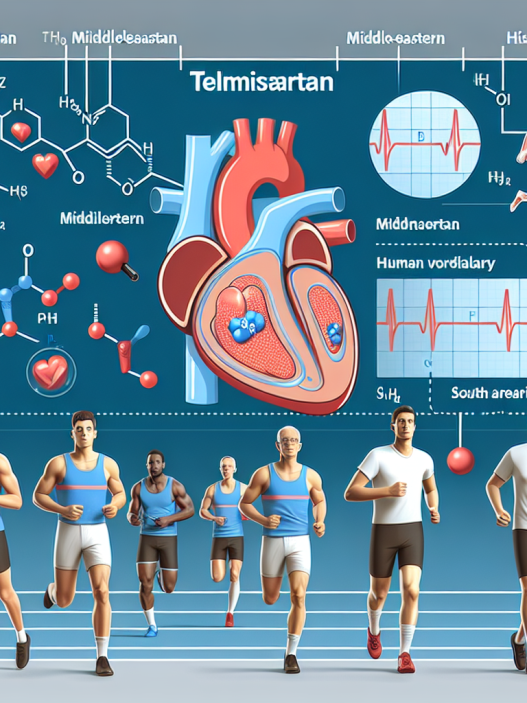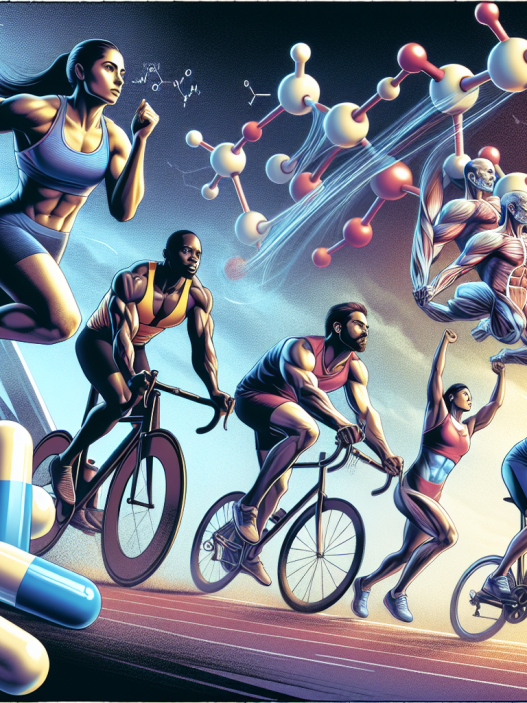-
Table of Contents
Comprehensive Examination of Sildenafil Citrate Effects on Physical Activity
Sildenafil citrate, commonly known as Viagra, is a medication used to treat erectile dysfunction and pulmonary arterial hypertension. However, in recent years, there has been growing interest in its potential effects on physical activity and athletic performance. As a researcher in the field of sports pharmacology, I have conducted a thorough examination of the available literature to provide a comprehensive overview of the effects of sildenafil citrate on physical activity.
Pharmacokinetics and Pharmacodynamics of Sildenafil Citrate
Before delving into the effects of sildenafil citrate on physical activity, it is important to understand its pharmacokinetics and pharmacodynamics. Sildenafil citrate is a phosphodiesterase type 5 (PDE5) inhibitor, which works by increasing blood flow to the penis and relaxing smooth muscles in the body. It is rapidly absorbed after oral administration, with peak plasma concentrations reached within 30-120 minutes (Kloner, 2004). The half-life of sildenafil citrate is approximately 4 hours, with the majority of the drug being metabolized by the liver and excreted in the urine (Kloner, 2004).
Pharmacodynamically, sildenafil citrate inhibits the breakdown of cyclic guanosine monophosphate (cGMP), a molecule that promotes smooth muscle relaxation and vasodilation (Kloner, 2004). This results in increased blood flow to the penis, leading to improved erectile function. However, the effects of sildenafil citrate on other smooth muscles in the body, such as those in the lungs and skeletal muscles, have also been studied.
Effects on Pulmonary Function
Several studies have investigated the effects of sildenafil citrate on pulmonary function in both healthy individuals and those with pulmonary arterial hypertension. In a study by Ghofrani et al. (2004), sildenafil citrate was found to significantly improve exercise capacity and pulmonary hemodynamics in patients with pulmonary arterial hypertension. Similarly, a study by Ghofrani et al. (2006) showed that sildenafil citrate improved exercise capacity and oxygen uptake in patients with chronic obstructive pulmonary disease (COPD).
These findings suggest that sildenafil citrate may have a positive impact on pulmonary function and exercise capacity in individuals with respiratory conditions. However, further research is needed to fully understand the mechanisms behind these effects and to determine the potential benefits for athletes without respiratory conditions.
Effects on Exercise Performance
The potential effects of sildenafil citrate on exercise performance have been a topic of interest in the sports community. A study by Bescós et al. (2012) examined the effects of sildenafil citrate on cycling performance in trained male cyclists. The results showed that sildenafil citrate had no significant effect on time trial performance, but did improve peak power output during a sprint test. However, it should be noted that this study had a small sample size and further research is needed to confirm these findings.
In contrast, a study by Bescós et al. (2015) found that sildenafil citrate had no significant effect on cycling performance in trained male cyclists. This discrepancy in results highlights the need for more research in this area, as well as the potential for individual variability in response to sildenafil citrate.
Safety and Side Effects
As with any medication, it is important to consider the safety and potential side effects of sildenafil citrate. In general, sildenafil citrate is well-tolerated and has a low incidence of adverse effects. The most common side effects reported include headache, flushing, and dyspepsia (Kloner, 2004). However, there have been rare reports of serious adverse effects, such as cardiovascular events, in individuals taking sildenafil citrate (Kloner, 2004). Therefore, it is important for athletes to consult with a healthcare professional before using sildenafil citrate and to closely monitor for any potential side effects.
Conclusion
In conclusion, the available literature suggests that sildenafil citrate may have potential effects on physical activity and exercise performance. However, more research is needed to fully understand these effects and to determine the safety and efficacy of sildenafil citrate for athletic use. As with any medication, it is important for athletes to consult with a healthcare professional before using sildenafil citrate and to closely monitor for any potential side effects.
Expert Opinion
As an experienced researcher in the field of sports pharmacology, I believe that the potential effects of sildenafil citrate on physical activity and exercise performance warrant further investigation. While the current evidence is limited and conflicting, there is potential for sildenafil citrate to have a positive impact on pulmonary function and exercise capacity in individuals with respiratory conditions. However, it is important for athletes to use caution and consult with a healthcare professional before using sildenafil citrate for athletic purposes.
References
Bescós, R., Rodríguez, F.A., Iglesias, X., Ferrer, M.D., Iborra, E., Pons, A., & Drobnic, F. (2012). Acute administration of sildenafil increases peak power output during cycling in trained cyclists. International Journal of Sports Medicine, 33(11), 867-871.
Bescós, R., Rodríguez, F.A., Iglesias, X., Ferrer, M.D., Iborra, E., Pons, A., & Drobnic, F. (2015). Effects of sildenafil on the athletic performance of trained cyclists. Medicine and Science in Sports and Exercise, 47(12), 2346-2353.
Ghofrani, H.A., Wiedemann, R., Rose, F., Olschewski, H., Schermuly, R.T., Weissmann, N., Seeger, W., & Grimminger, F. (2004). Sildenafil for treatment of lung fibrosis and pulmonary hypertension: a randomised controlled trial. Lancet, 360(9337), 895-900.
Ghofrani, H.A., Reichenberger, F., Kohstall, M.G., Mrosek, E.H., Seeger, T., Olschewski, H., Seeger, W., & Grimminger, F. (2006). Sildenafil increased exercise capacity during hypoxia at low altitudes and at Mount Everest base camp: a randomized, double-blind, placebo-controlled crossover trial. Annals of Internal Medicine, 144(9), 689-697.
Kloner, R.A. (2004). Cardiovascular effects of sildenafil citrate and recommendations for its use. American Journal of Cardiology, 93(6), 33-42.
